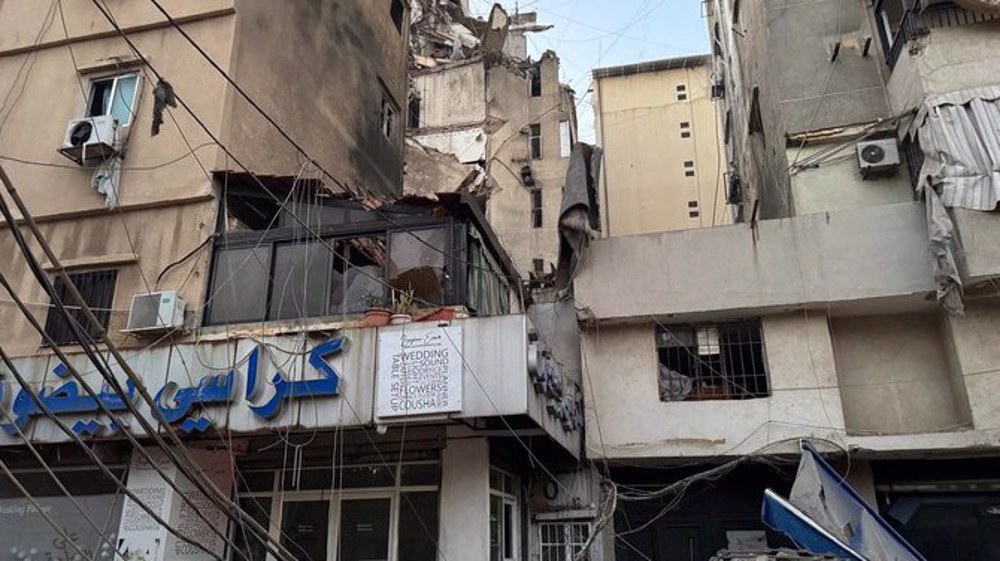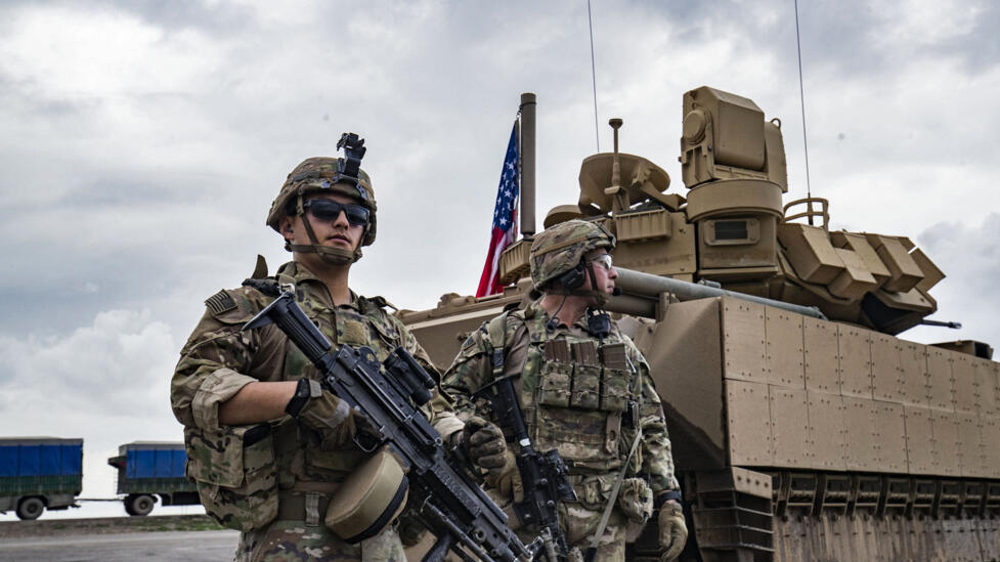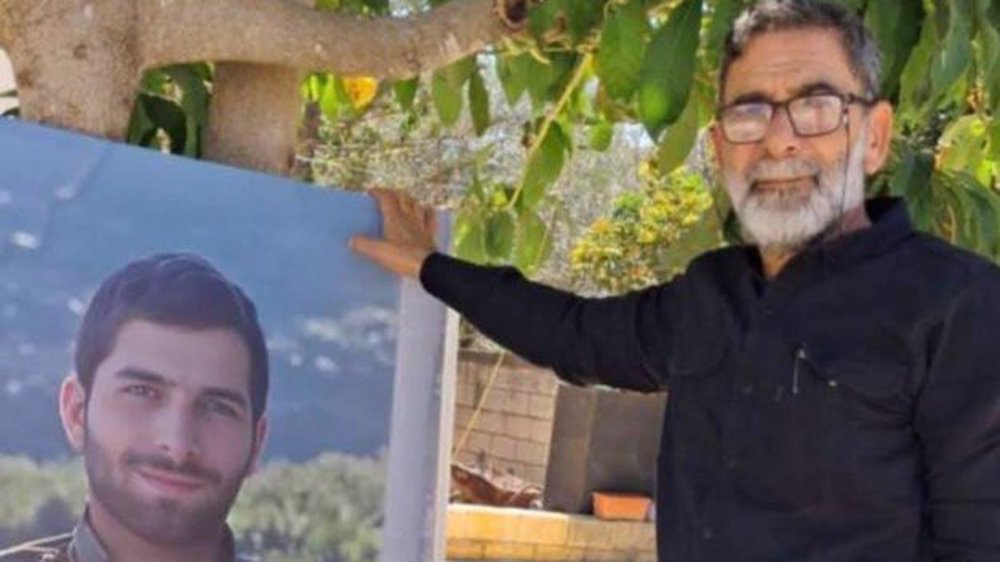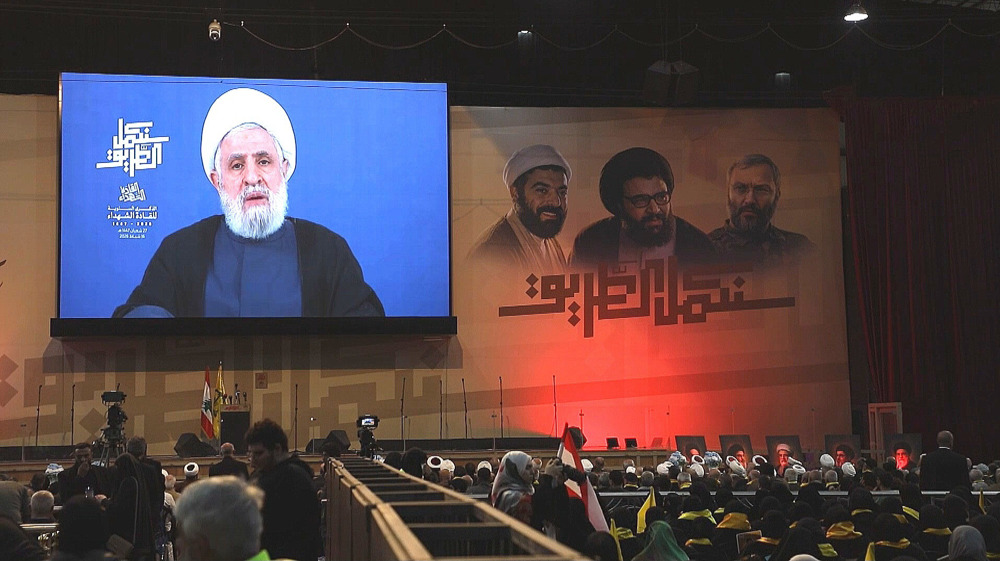Israel launches airstrike in Beirut; 3 killed, including two children, 70 injured
The Israeli military has carried out a strike on a residential building in the south of the Lebanese capital against a senior Hezbollah commander, who reportedly survived the attack, but killed three people and injured dozens more.
Lebanon’s official National News Agency (NNA) reported the attack in Beirut was conducted by a drone that fired three missiles.
It said the strike had targeted the area around Hezbollah’s Shoura Council in the Haret Hreik neighborhood of Beirut.
In a statement, the Israeli military said it had targeted a Hezbollah commander the regime claimed was responsible for last week’s rocket attack on the occupied Golan Heights.
The regime alleged that Lebanon's Hezbollah fighters were behind the rocket strike in Golan, which left a dozen people dead. Hezbollah strongly denied any involvement.
Local media reports said that the assassination attempt against Fuad Shukr was a failure. He is the highest military figure in Hezbollah and a longtime advisor to the group's leader Hassan Nasrallah.
Lebanon’s Health Ministry said three people, including two children, have been killed and 74 wounded in the Israeli strike.
The “non-final toll of the Israeli aggression on the southern suburbs of Beirut… is three martyrs, including a woman, a girl and a boy."
The ministry added that “the search for missing persons under the rubble continues."
A correspondent for Israel's Channel 13 said Israeli officials were not optimistic about the success of the assassination attempt in Beirut.
Security sources said at least three people were killed in the Israeli attack and dozens others wounded.
The Iranian Embassy in Lebanon condemned the Israeli aggression against Beirut.
“We condemn in the strongest terms the cowardly and sinful Israeli aggression that targeted the southern suburb of Beirut, which claimed the lives of a number of martyrs and wounded,” the embassy said in a post on X.
An official in Lebanon’s Amal Movement said the targeted building is inhabited by Lebanese citizens. “What happened today changes the equations dramatically, as it is a targeting in the depths of the suburb.”
The airstrike was the first in a suburb of Beirut since January, when an Israeli drone attack assassinated senior Hamas official Saleh al-Arouri.
Hezbollah responded to that act of aggression with massive strikes on Israeli military sites, targeting the Israeli military's sensitive Mount Meron air traffic control base for the first time.
Before Tuesday’s strike, a Hezbollah official said the group rejected calls from international envoys to avoid responding to an Israeli attack.
Hezbollah informed mediators it would still respond to any Israeli attack, the official told reporters.
"International envoys are indirectly raising with us the idea that we should not respond to the expected aggression under the pretext of the need to avoid escalation and sliding towards a comprehensive war," the Hezbollah official was quoted by Reuters.
Hezbollah had "informed them of our explicit rejection of this request" and would respond, the official said.
Hezbollah has long said it is prepared for any scenario should Israel deepen the war beyond the border area of southern Lebanon.
The two sides have been exchanging fire on an almost daily basis since early October when the Israeli regime launched the ongoing devastating war on Gaza.
Hezbollah has stated that it will halt its rocket and missile attacks on Israeli targets if the war in Gaza comes to an end.
VIDEO | Press TV's news headlines
VIDEO | Muslims across India begin holy month of Ramadan
Hamas condemns Trump's 'Board of Peace' meeting
Iran and Saudi FMs discuss outcomes of latest indirect Iran-US talks
VIDEO | Maritime anti-terrorism drill
Ex-prince Andrew released after arrest in connection with Epstein files
Iran elected vice-chair of UN Special Committee on Charter
Iran envoy says decision made to exchange ambassadors with Egypt










 This makes it easy to access the Press TV website
This makes it easy to access the Press TV website